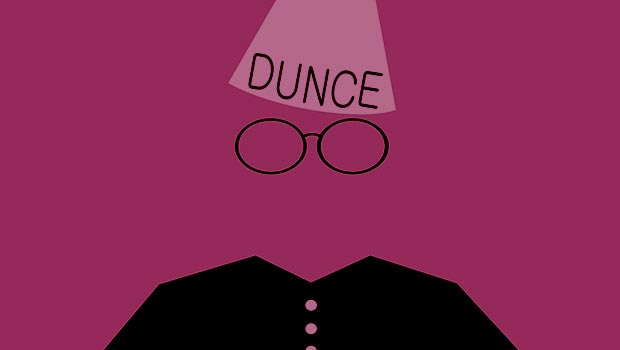Three truths and a lie about failure
Life is nothing without risk, and risk is meaningless without the possibility of failure. At least, that’s what everybody tries to tell us just when we’ve suffered a soul-crushing, mind-numbing failure.
The truth is, failure can be a constructive, growing, even validating experience. But it’s not all sunshine and rainbows. Here’s a sober look at the upside of a painful kick in the shin.
Small failures can add up to big successes
Entrepreneur and venture capitalist Peter Cohan, a visiting lecturer at Babson College, believes that a willingness to accept failure in stride is a core component of growth and success. He favors the minimum viable product (MVP) design philosophy, an approach that encourages quick yet frugal failures along a path to success.
“I would rather see somebody fail by building inexpensive, quick prototypes, getting feedback, and developing new and better prototypes, than running out of money before they can even try to sell a product,” he says.
That means not all failures are created equal, and rolling the dice on one big moonshot can leave you with nothing left to try and nowhere to go but home.
Accepting failure is a learned behavior
It’s too much to ask that we learn to love failure, but learning to accept and tolerate is easiest if failure has been a constant companion rather than something that creeps up on us long after we think we know who we are.
“Adults who have had to overcome some moderate adversity growing up tend to have the greatest outcomes later in life, because they’ve had to engage their social support network and develop coping mechanisms to deal with life’s problems,” says Timothy Bono, assistant dean and lecturer in psychology at Washington University.
Bono favors a “growth mindset,” which is more concerned about excellence in execution rather than focused on an end goal. Putting too much emphasis on the outcome makes failure that much more crushing, and leaves no room for appreciating the good that came from the process. These “fixed mindsets” are generally more fragile than their growth-minded counterparts, who embrace the opportunity to refocus and improve.
“This often leads to premature burnout at the first sign things aren’t turning out as they had hoped,” he says. “A person with the growth mindset is energized in such circumstances.”
Team failures are especially tricky
Some failures are clear-cut. We know what we did wrong, we know why our assumptions or our approach was invalid, and we know how to do better next time. In business, it’s rare that any major failure has just one stakeholder involved, and group settings complicate the healthy processing of a setback or disaster.
One way to help avoid confusion and mistrust in a collaborative setting is to be up-front about the risks and opportunities for calamity.
“What happens if the client cancels or a contributor pulls out of the project? These possibilities shouldn’t be hitting you out of the blue,” says John Rooney, emeritus professor of psychology at La Salle University. “You should always have options planned.”
Cohan recommends these questions as a framework for discussing and diagnosing a group failure:
- Was there a clear measure of success and failure in the beginning?
- Did the team have a set of shared values?
- Did everybody agree on the methodology the team would follow?
- Was there a regular process on checking in on the team’s progress of advancing towards its goals?
Whether or not the causes of a failure in a group project are easy to identify, it’s important to avoid finger-pointing and its inevitable companion, flat denial. “When that happens, nobody is looking through from the point of view of a learning experience, they just look at covering their ass,” Rooney says.
And now, the lies
Read enough about the wonderful advantages of failure and you might wonder why anybody ever bothers to get it right. Turns out those forays in pop psychology are exaggerating.
“Most research shows that you are more likely to learn from success than failure. It’s reinforcement theory: if you get a positive reward, if you feel good about what you’ve done, you’re more likely to do it again,” Rooney says. “Failure doesn’t give you the same message. It tells you what not to do, but not what to do.”
That doesn’t debunk the notion that failure can help us learn and grow. It does mean that, without a conscious effort to be honest about self-improvement and growth, failure can be far more frustrating than fruitful. Even worse, failure can lead us to the wrong lessons, such as the notion that the best way to avoid a future failure is to cheat on future evaluations.
“It doesn’t mean that any time there is a failure you’re going to improve,” Rooney says. “A lot of people don’t.”






